SA’s Australia Day Honours recipients for 2021: Seven South Aussies who have made a difference
A trailblazing footy umpire, a tireless volunteer, a rock star, an eye doctor ... we profile seven South Australians recognised in the Australia Day Honours.
SA News
Don't miss out on the headlines from SA News. Followed categories will be added to My News.
Some names you’ll recognise, some you won’t – the Australia Day Honours list shines a light on ordinary South Australians who have done extraordinary things. Here we profile seven of the local recipients. The full national list of 2021 Australia Day Honours is at the bottom of this page.
ELENI GLOUFTSIS
OAM, Medal in the general division
Trailblazing AFL umpire Eleni Glouftsis has been awarded an Order of Australia for her services to Australian Rules football.
South Australian Glouftsis became the first woman to umpire a men’s AFL match in 2016 when she officiated in a pre-season game between Carlton and Essendon.
The following year, aged 25, Glouftsis made her regular season debut when she took charge of a clash between Essendon and West Coast.
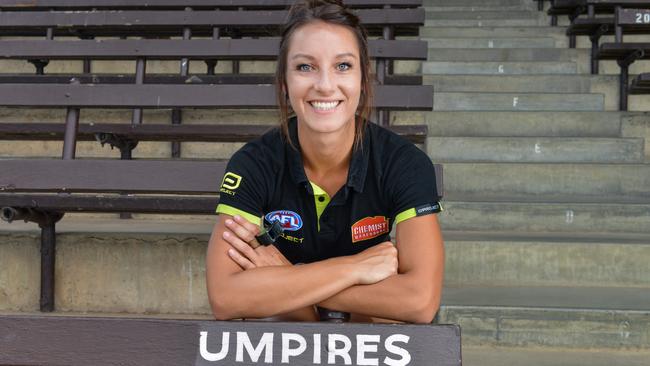
Glouftsis, who grew up near Prospect Oval, started her umpiring career in 2006 in the North East Metro Junior Football Association.
Since then the physical education teacher has recorded many firsts.
The first woman to umpire an A1 amateur league game, the first to officiate in the SANFL and then the first to control a VFL game before making her big league debut.
Glouftsis was also named Young South Australian of the Year in 2019.
In an Australia Day blog post talking about her experiences, Glouftsis said she had faced many “challenges’’ along the way from people who didn’t believe a woman should umpire in the men’s game.
“I have been called names and been put down by people who do not know me, rather the idea of what I was doing as it was not the ‘norm’, not traditional in a very traditional game,’’ she wrote.
“I saw many young girls come and go through my junior years and this always bothered me.
“I don’t want young girls, or boys, to face the hurdles I had to face to pursue my dream.
“As the only female in a traditionally male-dominated environment, I became accustomed to being seen as different.
“Through my achievements I hope to inspire young boys and girls to follow their dreams, to believe that they can be anything they want to be, regardless of what has been done before.’’
The footy oval has been central to much of Glouftsis’s life. Her partner Dillon Tee, a boundary umpire, proposed in the middle of the MCG after Glouftsis had umpired a Carlton-Adelaide game in 2019.
Glouftsis received her OAM for “service to Australian rules football, particularly as an umpire’’.
– Michael McGuire
GRAEHAM GOBLE
OAM, Medal in the general division
It may have technically formed in Melbourne but Little River Band founding member Graeham Goble very much regards it as an Adelaide group.
Mr Goble, 73, has received an OAM for his services to performing arts, which include writing five LRB songs that have each been played more than a million times on US radio, and 25 million album sales.
The band’s 1978 hit Reminiscing still holds the record for an Australian song in the US, having been played on air more than five million times.
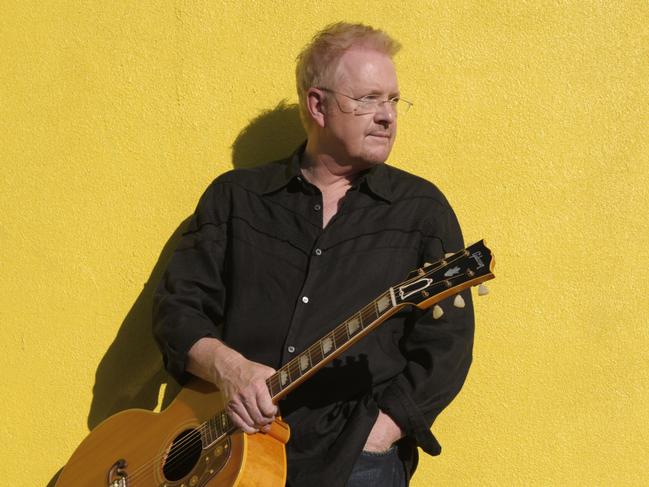
“Adelaide is where we all started everything. I was born in Adelaide – I was the only Australian-born member of the original Little River Band,” Mr Goble said.
LRB’s other core members, Dutch-born Beeb Birtles and English-born Glenn Shorrock, were raised in Adelaide and also formed their first bands here.
One of Goble’s early Adelaide bands, Allison Gros – which he says was named after a Scottish witch – changed its name to Mississippi after it moved to Melbourne in 1971.
Birtles and then Shorrock later joined the line-up, which eventually became the Little River Band.
“We were so committed to becoming an international act without leaving Australian shores. We lived in Melbourne, even though we did 16 tours of America,” Mr Goble said.
“We were the first band that actually recorded in Australia with all-Australian musicians, and we cracked the American market and went to the top of the charts, and had massive success over 10 years.”
LRB’s success paved the way for other Australian acts such as Men at Work, INXS and Air Supply.
“We proved it could be done,” Mr Goble said.
Allison Gros also had a national chart hit in 1971 under yet another name – Drummond – when record label owner Ron Tudor had it record a novelty version of the 1950s song Daddy Cool to cash in on the success of Ross Wilson’s band Daddy Cool.
“We decided to conceal our voices and our identity by doing it in a ‘Chipmunk’ version (with sped-up vocals),” Goble said.
“It actually knocked (the band) Daddy Cool’s Eagle Rock off the number one spot.”
– Patrick McDonald
WINNIE PELZ
AM, Member in the general division
Ask Winnie Pelz about the Logie she won in 1976 for Most Popular Female in South Australia and she’ll tell you it’s “ancient history”, now sitting on a bookshelf at her home in Yankalilla.
The former host of ABC-TV’s This Day Tonight would rather talk about her seven years as a board member of the National Library of Australia.
“It is really significant to me because it was such a privilege and a wonderful opportunity because it is such an important organisation in a national sense,” she said.
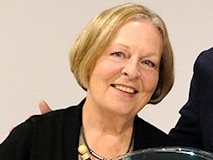
Another major milestone was her term as the Jam Factory’s executive chair and artistic director from 1981 to 1986.
“It was not in a good financial position, but we managed to turn it around and it became a national icon,” she said, adding she was privileged to be part of its change of fortune which included a move from Payneham Rd into the Adelaide CBD.
“It’s one of the most important things I have ever done – I have a lot of pride in it.”
Pelz has been appointed to the Member of the Order of Australia (AM) for her significant service to arts administration and the community.
She said she was sharing the accolade with the teams of “really good people” she has been surrounded by in her leadership roles, which included being the Guide Dogs SA/NT chief executive officer and executive director of the Women’s and Children’s Hospital Foundation.
“These awards go to individuals, but it’s always collective effort that achieves results,” she said.
Also a former SA Arts Department director of policy and programs and CEO, Pelz said her Australia Day honour also recognised the importance of the arts.
She said they had a high profile during Don Dunstan, Gough Whitlam and Paul Keating’s terms in state and federal politics, but had suffered funding cuts during the past decade.
“The arts have really been doing it tough during the past year,” she said.
– Anna Vlach
PROFESSOR LESTER RIGNEY
AM, Member in the general division
The list of Professor Lester Rigney’s achievements over his two decades devoted to Aboriginal education is lengthy.
It includes being director of the Wirltu Yarlu Aboriginal Education, winning the National Aboriginal Scholar of the Year NAIDOC in 2011, and recently being named Distinguished Professor at Kings College in London.
Prof Rigney says having a career that has allowed him to be at some key historical movements stands out for him.
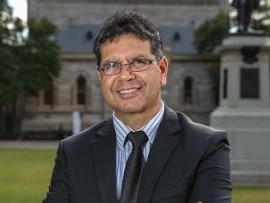
“I was in South Africa at the time apartheid was overthrown and I was investigating when people are at war and the guns fall silent, how does the school help reconcile the nation,” he said. “The schools do the work of the nation and the child is the future.”
Prof Rigney has been made a Member of the Order of Australia in the Australia Day Honours list for his service to Indigenous education and social inclusion research.
“I’m really honoured that my research has been recognised for its contribution to fixing educational inequality,” he said.
Prof Rigney said Australia needs to invest more in early childhood education to improve educational outcomes for all children.
“All children have a right to a quality education, all children are intelligent, however Australia is missing the mark on educational outcomes that give all children a future,” he said.
“We know that Aboriginal and other minority groups are the barometer to measure success.
“The Closing the Gap outcomes are appalling in Australia and have been for 10 years.”
Prof Rigney said much of his career had been inspired by his mum, the late Alice Rigney, who devoted her life to education.
“I come from a long list of powerful women from the Narungga Nation,” he said.
“My mother was the first female Aboriginal school principal in Australia and she established the first urban Aboriginal school, the Kaurna Plains Primary School. Now there are schools across the country modelled on that one school.”
As Prof Rigney prepared to receive the honour on January 26, he said he did not think it was appropriate that Australia Day was celebrated on a day when there was an “arrival or conquer of one group over another”.
“I think there will be a day when all can celebrate, a day of Australia where no one is offended by its celebration,” he said. “Until that day, there will always be these discussions and urban debates.”
– Rachel Moore
HEATHER THOMPSON
AM, Member in the general division
Heather Thompson’s involvement in surf life saving dates back to the mid-1980s.
She has been on the SA Board of the organisation since 2000 and is globally recognised as an official.
While she has been made a Member of Order of Australia for services to surf life saving, her involvement in sports volunteering and work stretches across many disciplines, including netball, swimming, athletics and even ice hockey.
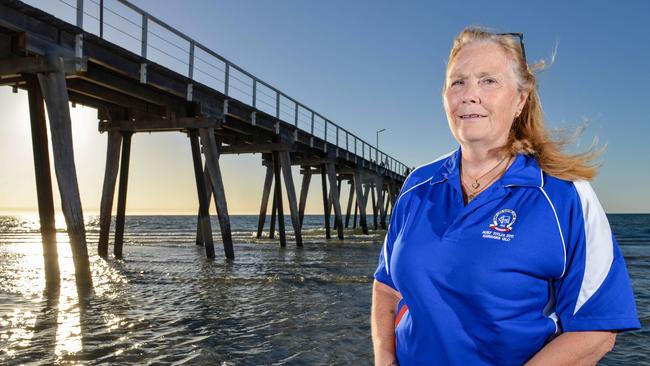
“We all do what we do because we love it, but it is nice to be acknowledged,’’ Mrs Thompson said of her award.
Mrs Thompson, 64, said her love of surf life saving began because she tried to give her children the widest range of activity options as a young mother.
“My husband was a surf life saver when we met and when we had our children I was one of these people that wanted to give them every available opportunity,’’ she said.
“Both my son and daughter did whatever sports they wanted to do, and then because of that I became involved, because I also don’t believe in just having everyone else supervise and organise.
“Don’t stand back, get involved!”
Internationally, Mrs Thompson served as an organising committee member and deputy referee for the Life Saving World Championships in Adelaide in 2018.
She is a life member of Surf Life Saving Australia and was South Australian Volunteer of the Year in 2007 and 1995.
– Miles Kemp
Professor John Crompton
AM, Member in the general division
Ophthalmologist Professor John Crompton vividly recalls joining a trip to the Solomon Islands as a young trainee.
“Doing cataract work on people who are blind … then seeing them have their sight restored is just magic, it gives you such a buzz and is so rewarding,” he said.
“My dad, David, was an eye surgeon and taught me to help others, and I loved it.”
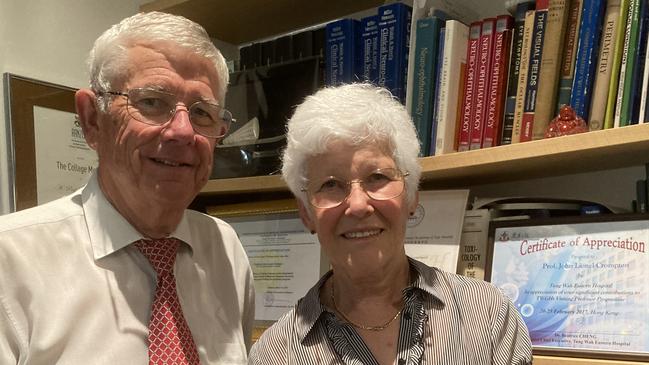
Prof Crompton, 74, of North Adelaide, has spent a lifetime helping the less fortunate in places such as Kiribati, Tuvalu, Vanuatu, Fiji, Myanmar, Indonesia, Laos, China and Cambodia.
Plans to teach local eye doctors in Mongolia this year were put on hold due to the COVID-19 pandemic.
Working with charities including Sight For All, he carried out eye surgery on people in developing countries and established training programs for local doctors and nurses.
“We found it is better to go there and do in-country training where possible rather than bring their people here,” he said.
The former head of the Royal Adelaide Hospital Eye Department served on numerous professional bodies, but his ongoing humanitarian work remained a joy.
“It is the people who make it worthwhile,” he said. “They really appreciate your help and it is fantastic to go to and see some of these places.”
– Brad Crouch
Patricia White
AM, Member in the general division
Trish White has risen to the top in two major sectors – politics and engineering.
As national president of Engineers Australia, she led the profession at the same time as running her own business, providing direction to the state’s universities and advising industry on advanced manufacturing.
Born and educated in Queensland, Ms White moved to SA to work for the Defence Science and Technology Organisation. In 1994, she began a 16-year career as a Labor MP, which included ministerial posts in Education and Children’s Services, Science and Information Economy, Transport and Urban Development and Planning.
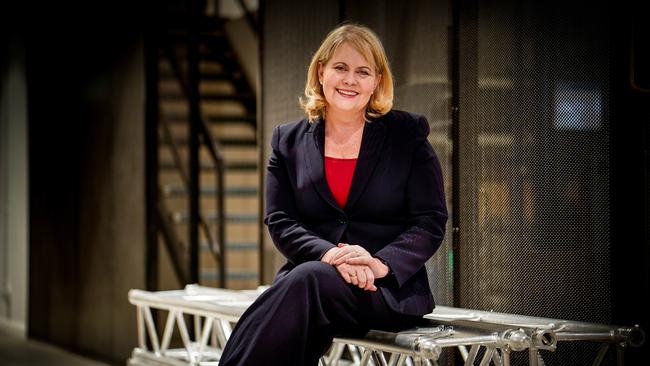
In 2010, she returned to the private sector, where she has been a director of Flinders Ports and served on advisory boards for Adelaide University, Flinders, UniSA and the Australian Industry Group.
Ms White said her career streams complemented each other.
“Engineering is based on scientific evidence; politics is based on influencing people to follow your vision,” she said.
“Politicians do better when they ground their policies and arguments in evidence.
“Engineers do better when they realise it’s not all about the technology.
“They have to be able to communicate well about the impacts of their work on people’s lives.”
– Chris Russell



